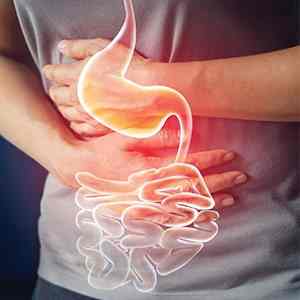Gastrointestinal
Surgeries
Gastroenterology Surgeon in pune
Gastrointestinal Disorders
Obviously, the symptoms of digestive illnesses vary from illness to illness and from person to person. However, most gastrointestinal illnesses have some symptoms. Common signs and symptoms include:
- Stomach discomfort (bloating, pain, or cramping)
- Weight loss that occurs inadvertently
- Vomiting and nausea
- Acid reflux (heartburn)
- Constipation and diarrhoea (or both, at times)
- Abdominal incontinence
- Fatigue
- Appetite suppression.
- Problems in swallowing.
Contact Dr. Shama Shaikh, Gastroenterology Surgeon in Pune straight away if you observe blood in your vomit or stool.


What are the root causes of stomach issues?
Some of the most common causes of gastrointestinal problems are as follows:
Fibre, a form of carbohydrate found in plants that cannot be digested, is vital for digestive health. It makes you feel full and aids in the digestion of certain foods. Everyone is talking about gut health, or the health of your microbiome, and fibre is an important part of that. Fibres are an excellent source of fuel for the billions of beneficial bacteria (your microbiota) that dwell happily in our large intestine and provide numerous health advantages.
A total daily fibre intake of 25 grammes for women and 38 grammes for men under the age of 50 is recommended. If you’re over 50, you should eat a little less (about 21 grammes for women and 30 grammes for males). The good news is that fibre may be found in a wide range of foods, including fruits (albeit almost entirely in the skin), whole grains, legumes, beans, and vegetables.
A high-fiber diet can help with bloating and digestive problems ranging from constipation to stomach pain and even the onset of colon cancer. If you have a gastrointestinal problem, please consult Dr Shama Shaikh. She is a highly skilled Gastroenterology Surgeon in Pune.
Effects of Gastrointestinal Disorders
- Being stressed
Stress and anxiety affect not just your mental health, but also your digestive health, namely your gut bacteria. According to current medical studies, the GI system and the brain are inextricably linked. The stomach contains more neurons than the entire spinal cord because the two are constantly communicating and transferring messages to one another.
A number of digestive issues, including appetite loss, inflammation, bloating, cramps, and microbiota changes, have been associated to stress.
- Drinking minimal quantities of water
Water is necessary for digestive health since it helps to cleanse the entire gastrointestinal system. Water softens the stool, which aids in constipation prevention. More importantly, water is thought to enhance digestion by assisting with meal breakdown and allowing the GI tract to absorb nutrients more rapidly and effectively. If you don’t drink enough water, you invite all kinds of stomach problems.
- consuming a lot of dairy products
Dairy is a very recent addition to the human diet; it was not consumed throughout the first 200,000 years or so of humanity’s existence. Milk and cheeses are typically high in difficult-to-digest lipids and proteins that, according to some medical research, have a pro-inflammatory effect. As a result, excessive consumption of dairy products may cause bloating, gas, constipation, and stomach cramps.
- Aging
Ageing is inescapable, and it increases the risk of gastrointestinal disorders. As we age, digestive gland activity decreases, affecting gut motility, reflux, and the development of various digestive illnesses. Cancers of the digestive tract are also increasingly common as people age.
Consult with a reputed and experienced Gastroenterology surgeon in Pune. Shama Shaikh Surve, M.D. She specialises in gastroenterology.
fAQ's
A gastroenterology surgeon is a medical specialist who is trained to diagnose and treat conditions affecting the digestive system. They are experts in performing surgeries on the gastrointestinal tract, including the esophagus, stomach, small intestine, colon, and rectum. Gastroenterology surgeons treat a wide range of conditions, including cancers of the digestive system, inflammatory bowel disease, gallstones, hernias, and gastroesophageal reflux disease.
A gastroenterology surgeon is a medical specialist who is trained to treat conditions that affect the digestive system. They perform surgeries to treat a wide range of digestive disorders, including gallbladder disease, appendicitis, and colon cancer. They also perform endoscopies, which involve using a flexible tube with a camera to examine the digestive tract. Gastroenterology surgeons may work with patients who have conditions such as acid reflux, inflammatory bowel disease, and liver disease.
Gastroenterology surgeons treat digestive disorders with a variety of procedures. Among the most common procedures are:
Gallbladder surgery entails the removal of the gallbladder, which is frequently required if a patient has gallstones or other gallbladder diseases.
Colon surgery entails removing a portion of the colon, which is frequently required when a patient has colon cancer, inflammatory bowel disease, or other conditions.
Endoscopy: A flexible tube with a camera is used to examine the digestive tract. It is capable of detecting conditions such as ulcers, polyps, and tumours.
Hernia repair entails repairing a hernia, which is an abdominal wall bulge. Depending on the severity of the hernia, it can be performed using minimally invasive techniques or open surgery. Get a consultation with a Gastroenterology Surgeon in Pune, Dr. Shama Shaikh.
